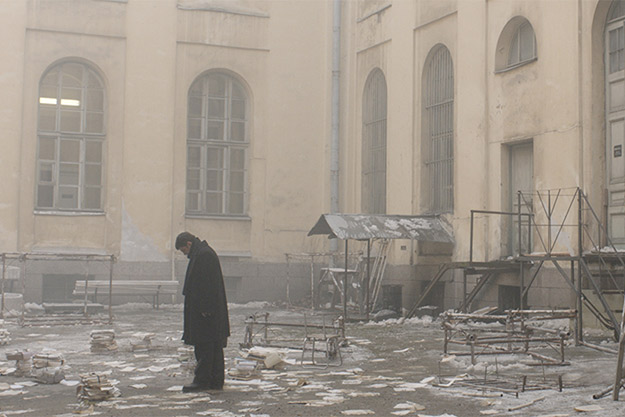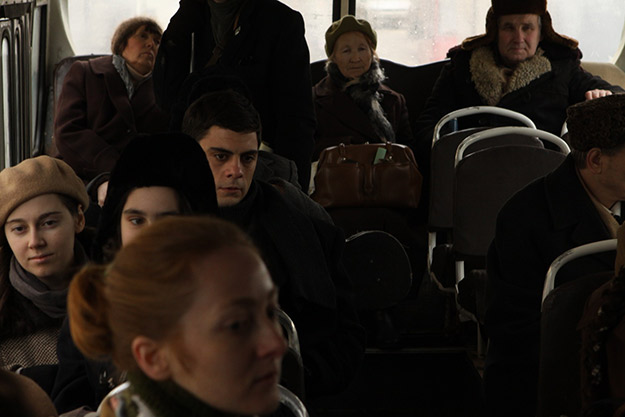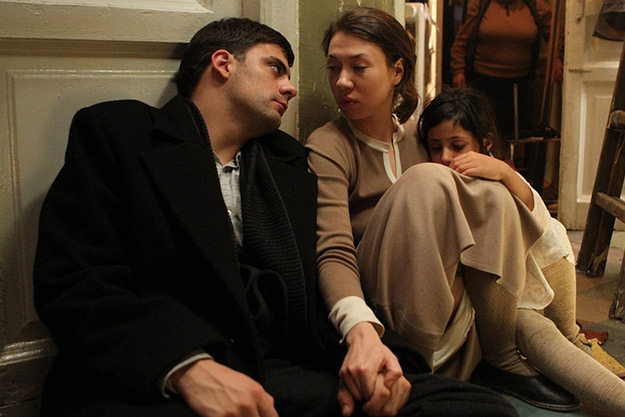Berlin Interview: Alexey German Jr.
The names, events, and dates given here are all real. I invented only those details that were not essential. Therefore, any resemblance between the characters in this book and living people is intentional and malicious. All the fictionalizing was unexpected and accidental.
The Author
—Sergei Dovlatov, The Zone: A Prison Camp Guard’s Story
Like many of his compatriot artists, Sergei Dovlatov’s status as one of Russia’s most widely read and cherished modern authors came as the posthumous culmination of nearly a lifetime of rejection and tribulation. Born in the USSR to an Armenian mother and a Jewish father in 1941, Dovlatov sustained his family as a journalist while continually wrestling with censorship as a fiction writer before his eventual exile to the United States where he published a dozen of books and died in 1990. Set in 1971 in Brezhnev-era Leningrad over the course of a significant and tumultuous week in the then-unknown writer’s life as he reflects on his ethics and talent amid loss and defeat, Dovlatov is the product of director Alexey German’s more than a decade-long effort to give compelling cinematic form to a bruised existence that holds deeply personal resonance for him. Unfolding like an opiated memory through lush balletic visuals punctuated by nightmarish episodes of despair and destruction, Dovlatov manages to be at once a soulful commemoration of a thriving artistic community and an unflinching condemnation of the rigid political system that broke it apart.
All the more moved by the characters’ fates as the daughter of Turkish journalists, I caught up with German last week following Dovlatov’s premiere at the 68th Berlin Film Festival, where it was awarded the Silver Bear for Outstanding Artistic Contribution for costume and production design.

Dovlatov is a biographical period piece imbued with a distinctly fictional quality. How much did you draw on Dovlatov’s own life and writings and how did you achieve this fusion of reality and fiction?
Dovlatov’s writings cannot be transferred onto the screen. What he wrote about himself was like a fairytale—sometimes funny, sometimes sad, sometimes tragic—and you cannot make a film out of a fairytale. Dovlatov is like Charlie Chaplin, in the sense that there were two Chaplins: the one on the screen, the satirical, funny Chaplin with the hat, and the real-life Chaplin. So I chose the difficult road and made the whole story up, which means that 80 percent of what you see in the film is fictional. But I took real reference points of course, like him being poor, his work not being published, and the whole atmosphere around him.
There’s also the fact that the ’70s—not only in Russia but also worldwide—were a time when reality was so complex and distorted that it could only be grasped through fiction.
Reality doesn’t change, people do. People were more complex back then, in the sense that they viewed the world in a more complex way than they do today. It was the aftermath of war, and communication also happened very differently—there was no social media—so people were more mature and perceived the world in a deeper way. Today, there’s more simplification and the millennial generation is less mature: they understand simpler connotations than the generations before them. In my previous feature, Under Electric Clouds [2015], I made predictions about the fragmentation of society and the crisis of globalization that turned out to be true, but unfortunately not many people understood that film.
You’ve spoken of Dovlatov’s autobiographical significance, referring to your father’s hardships as a banned filmmaker during the Soviet era. How did you reconcile Dovlatov’s story with this personal meditation?
I made this film because I wanted to go back to the city of my childhood and remember that era; I was born a bit later but cities in the Soviet Union didn’t change that much. Dovlatov and my father knew each other: they lived two kilometers away from each other and my grandfather saved Dovlatov’s brother from prison. My father had banned films, including one that was banned for 15 years, Trial on the Road [1971], and my two grandfathers were writers, so there are a lot of parallels between Dovlatov’s life and mine.

This also explains why you chose to make a film about Dovlatov rather than someone like Joseph Brodsky, who appears in the film as a close friend of Dovlatov’s.
Brodsky is not as enigmatic a figure as Dovlatov. He got his Nobel Prize and was a resistant. Dovlatov is more paradoxical: he wasn’t Russian and didn’t look it, neither did he look like a writer. He liked women but was also very attentive towards his family. He was fragile but looked like someone who could never be hurt.
I was surprised to find out that Milan Marić, who bears a striking resemblance to Dovlatov, is Serbian and learned to speak Russian for the film. Was having a foreigner play Dovlatov a way of paying tribute to his mixed heritage and multicultural experience?
When we were casting for the film, all the Russian stars wanted to be Dovlatov. They would call, write messages, send their headshots, harassing us on a daily basis for half a year, which was unbearable. We needed a very sharp actor who looked like Dovlatov and could pull off being the co-author of the film. Language is not that important when you’re working with a talented actor who can create the role.
Did you do a special preparation with Marić?
The main thing was that he lived in a tiny flat in the Northern area of Saint Petersburg for eight months, ate greasy Russian food, and tried to feel like a Russian writer!
You situate the film in this ethereal, gauzy space through floating long takes, particularly during the interior ensemble scenes where the camera drunkenly shifts from character to character and from room to room. While this painterly style exudes a great deal of poetry, it also has the unsettling effect of giving your characters a ghostly presence, as though they were stuck in a limbo between life and death.
I wanted to have poetic interludes throughout the film and for the audience to feel like another viewer in the room, just observing these people as they converse, drink, read poems. As for what you’ve said about life and death and ghosts, I’m not that smart! [Laughter]

I was especially struck by your recurrent use of jazz music, which lightens up the film’s more gloomy and tragic sections while also foreshadowing Dovlatov’s New York years. Despite its difficult context and as opposed to the apocalyptic mood of Under Electric Clouds, Dovlatov is permeated with a profound sense of joie de vivre.
Dovlatov loved jazz and once said that it is the music that accompanies us in the best moments of our lives. I didn’t want to make this gloomy, political film, and I don’t like those festival films where everyone is sitting there, drinking and being sad. So I thought that jazz would add sparkle to the film.
The film is full of vibrant injections of dark comedy. Did jazz also allow you to mirror Dovlatov’s own irreverent sense of humor and writing style?
Dovlatov is thought to be a very light writer in Russia. So there’s humor in the film partly because of Dovlatov himself and also because watching two hours of suffering would simply be unbearable.
Towards the end of the film, Dovlatov declares in voiceover: “I thought that if I wrote a novel, the world would awaken.” Likewise, you’ve said that your film is meant as a kind of cautionary tale for the Russian society.
I could say a very horrible thing to you, but I will speak honestly. This phrase was made simpler for foreign viewers. The original Russian phrasing is more meaningful—I don’t remember it exactly, but it’s something like: “I want to see the truth in the life I’m leading.” We worked on the translation for five months. For some phrases, there were like 10 different versions of the translation, and we kept giving them to foreigners to see which one they understood best. We Russians look like Westerners but are totally different, and for that reason some things are just untranslatable.
Yonca Talu is a filmmaker living in Paris. She grew up in Istanbul and graduated from NYU Tisch.







